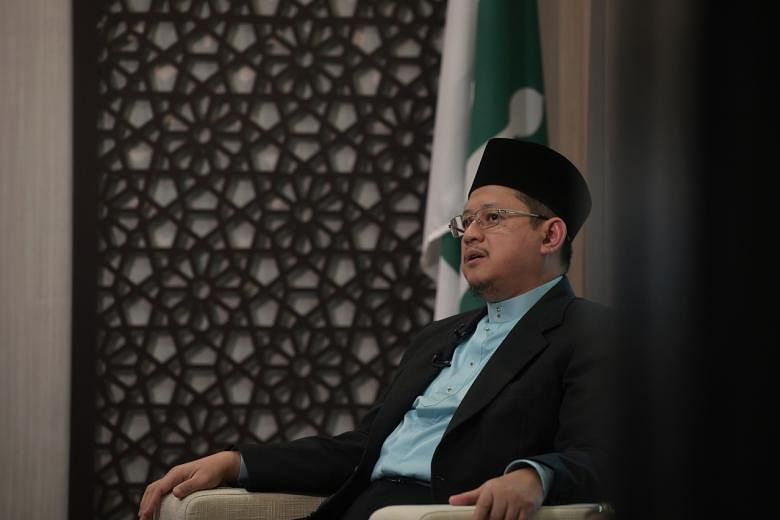SINGAPORE - Islamic religious teachers here have helped greatly in getting the Muslim community to understand some tough decisions that the Islamic Religious Council of Singapore (Muis) has had to make, the outgoing Mufti Fatris Bakaram has said.
He said this was made possible by Muis' close engagement with the asatizah, or religious teachers, during his nine years as Singapore's highest Islamic authority and he stressed the importance of continuing with the practice.
In an interview with the media on Thursday (Jan 16), Dr Fatris cited the barring of some foreign preachers and the approval of a milk bank to save premature babies, which some have said runs counter to traditional Islamic beliefs, as Muis rulings that benefited from the religious teachers' help.
Dr Fatris will step down as mufti, Singapore's highest Islamic authority, in March.
When asked about his greatest achievement during his term, Dr Fatris highlighted how he had enjoyed getting on the ground to engage closely with the asatizah.
"I think that, to a large extent, it has developed a more comfortable set-up between the community and me as the mufti," said Dr Fatris.
"And that has helped a lot in the dissemination for fatwas that we issued for them to be discussed by the community in the open - for the community to ask questions or to reiterate points where they need more clarification."
Fatwas are religious rulings on a point of Islamic law. In Singapore, a committee that is managed by Muis and headed by the Mufti is in charge of deliberating on and issuing fatwas.
Dr Fatris currently heads the committee and will continue to serve as a senior associate member even after he steps down .
Dr Fatris is also known for his efforts in setting high standards for the asatizah here during his term as mufti.
He led the development of progressive religious policies and programmes for Islamic scholars and teachers and further developed the Asatizah Recognition Scheme - a national accreditation programme for religious teachers that requires them to abide by an ethical code and which includes efforts for their continual professional education.
Touching on the development and application of Islamic laws here, Dr Fatris said that there is a need to move beyond what is said in traditional Islamic texts and focus on the intention behind these laws as, historically, many of these laws come from interpretations that could be different from current contexts.
"It is more important to understand the intent of the law. The objective of the text is really to enhance the life of human beings, and this is very much needed in moving forward, when we deliberate more fatwas, when we take the challenge of reviewing our past fatwas," said Dr Fatris, adding that asatizah play a key role in helping the community understand this.
Dr Fatris said that this approach of keeping up with the times and ensuring that religious rulings here are contextualised is especially needed in view of Singapore's multiracial society.
"I think it is very important for such a small state like Singapore (to) be very conscious of that, and to be very aware of that. And that's why I think the special relationship that we have with our local asatizah, local scholars is of critical importance."


